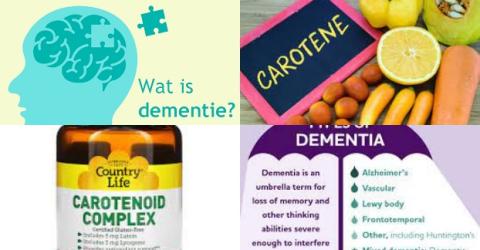
Objectives:
Given their potent antioxidation properties, carotenoids play a role in delaying and preventing dementia and mild cognitive impairment (MCI). However, observational studies have found inconsistent results regarding the associations between blood carotenoid levels and the risk of dementia and MCI. Therefore, this review article has been conducted.
Is a lower blood carotenoid level (like lycopene, zeaxanthin, lutein) a risk factor for dementia or mild cognitive impairment?
Study design:
This review article included 23 studies with 1,422 patients with dementia, 435 patients with mild cognitive impairment and 4,753 controls (persons without dementia or mild cognitive impairment).
Results and conclusions:
The investigators found meta-analysis showed that patients with dementia had lower blood lycopene [SMD = -0.521, 95% CI = -0.74 to -0.301], α-carotene [SMD = -0.489, 95% CI = -0.697 to -0.281] β-carotene [SMD = -0.476, 95% CI = -0.784 to -0.168], lutein [SMD = -0.516, 95% CI = -0.753 to -0.279], zeaxanthin [SMD = -0.571, 95% CI = -0.910 to -0.232] and β-cryptoxanthin [SMD = -0.617, 95% CI = -0.953 to -0.281] than the controls.
The investigators found owing to insufficient data, no similar and stable relationship between blood carotenoid levels and mild cognitive impairment was observed.
The investigators concluded lower blood carotenoid level is a risk factor for dementia.
Original title:
Low blood carotenoid status in dementia and mild cognitive impairment: A systematic review and meta-analysis by Wang L, Zhao T, […], Jiang Q.
Link:
https://pubmed.ncbi.nlm.nih.gov/36997905/
Additional information of El Mondo:
Find more information/studies on carotenoids and Alzheimer 's disease right here.
Circulating concentration of lycopene in blood can be increased by eating foods that are high in lycopene and/or taking lycopene supplements.